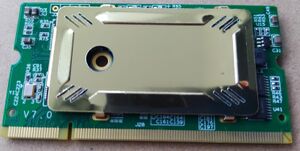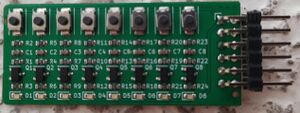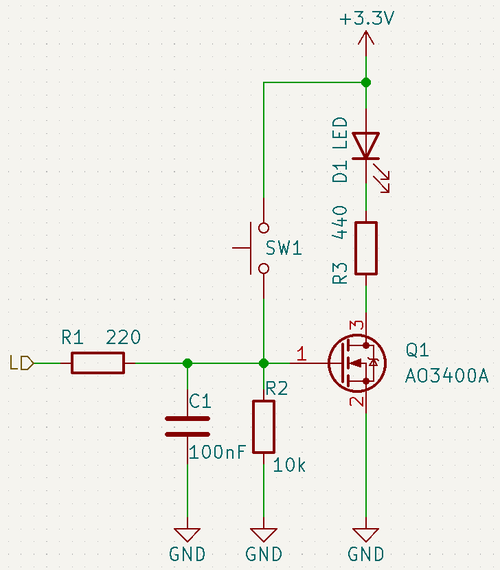Difference between revisions of "ColorLight I5"
Jump to navigation
Jump to search
| (2 intermediate revisions by the same user not shown) | |||
| Line 22: | Line 22: | ||
== Button and LED Board == | == Button and LED Board == | ||
| + | [[File:IO Button and LED - top view.jpg|300px|thumb]] | ||
| + | The [[#Extension Board|Extension Board]] has got a number of I/O's neatly arranged together in groups of 8, each group with it's own 3.3V power and GND. To be able to add input buttons and output LED's, I created a small I/O board for this purpose. | ||
| − | + | [[File:IO Button LED schematics.png|500px]] | |
| + | |||
| + | In order not to put a load on the I/O pin, the LEDs are driven by a MOSFET. | ||
| + | |||
| + | When a I/O port is running as an input (need a pull down) the LED will light up when the button is pressed. | ||
== Gallery == | == Gallery == | ||
Latest revision as of 02:08, 25 November 2022
ColorLight I5 Module
The ColorLight I5 module is designed and sold to drive LED displays. As such they make a lot of them and get the FPGA cheaper than they are commonly available.
Features
- ECP5 LFE5U-25F FPGA
- 24000 LUTs
- 56 sysMEM block RAMs of 16kb each
Extension Board
Extension Board Pinout
Courtesy of Tom Verbeure's excellent post:
Button and LED Board
The Extension Board has got a number of I/O's neatly arranged together in groups of 8, each group with it's own 3.3V power and GND. To be able to add input buttons and output LED's, I created a small I/O board for this purpose.
In order not to put a load on the I/O pin, the LEDs are driven by a MOSFET.
When a I/O port is running as an input (need a pull down) the LED will light up when the button is pressed.






